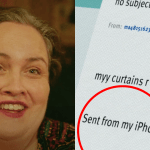
When tennis great Billie Jean King, who is portrayed by Emma Stone in new film ‘Battle of the Sexes‘, spoke to Stone and her co-star Andrea Riseborough for ‘Out Magazine‘ their conversation traversed Margaret Court and equal pay.
Stone revealed a pretty interesting tidbit: that her male co-stars have taken pay cuts so that she could achieve parity. But we will get to that. First, some quick book learnin’:
‘Battle of the Sexes‘ depicts a 1973 tennis match between King and Bobby Riggs, a former tennis pro played by surprise silver fox Steve Carell, who reckoned he could beat any woman at the sport.
Interestingly, considering we’re about to talk about Court, Riggs had played her before he ever played King. Court, who was world #1 by the end of that year, lost to him in May, and it was not pretty.
Then, he played King in September, who had previously declined his challenges. She trounced him, winning in straight sets, and scored herself a cool $100K. King was world #1 the year prior, and in 1974. Boom.
On top of that, she was also the first professional female athlete to come out as a lesbian in 1981, while she was still married.
So the film has to cover a lot of ground in terms of gender and sexuality. And it seemingly is super relevant to today, when equal pay is still but a dream, and when Court is so open about her distaste for both same-sex marriage and same-sex families.
King is the one who brought up our very own Margaret Court:
“Watching this movie was terrifying for me. This is a slice of 1973 and what was going on in my life and other people’s lives. I just really hope it touches the hearts and minds of people and gives them a glimpse of the early ’70s and the challenges, especially for the LGBTQ community. And with Margaret Court recently coming out [against lesbian players], this feels very timely.”
Stone said she thought the film was timely too, particularly in terms of discussions of equal pay in Hollywood, saying that actresses make at most “80 cents to the dollar“. King pointed out that that’s white women, and that parity is even further away for women of colour.
Riseborough, who plays King’s lover in the film, then explained how the Hollywood pay grade system works:
“Hollywood works on quotes, so if somebody’s going to pay a huge actor $52 million to be in a movie or a franchise, he’s going to have a higher quote than anyone else. There are maybe one or two women that have a quote that’s as high as a guy’s, because most films are about white males.”
And Stone, arguably one of the most successful women in the biz right now said this:
“In my career so far, I’ve needed my male co-stars to take a pay cut so that I may have parity with them. And that’s something they do for me because they feel it’s what’s right and fair. That’s something that’s also not discussed, necessarily—that our getting equal pay is going to require people to selflessly say, ‘That’s what’s fair.’ If my male co-star, who has a higher quote than me but believes we are equal, takes a pay cut so that I can match him, that changes my quote in the future and changes my life.”
So some blokes who are starring with her – you know people like Ry Gos and Colin Firth and Andrew Garfield – are taking smaller pay cheques so that they’ll earn the same amount. As opposed to studios just upping the amount they pay Stone. It’s baffling.
Still, it’s nice to see these kind of issues discussed in such a nuanced and in-depth way.
Source: Buzzfeed / Out Magazine.
Photo: Jason LaVeris / Getty.



